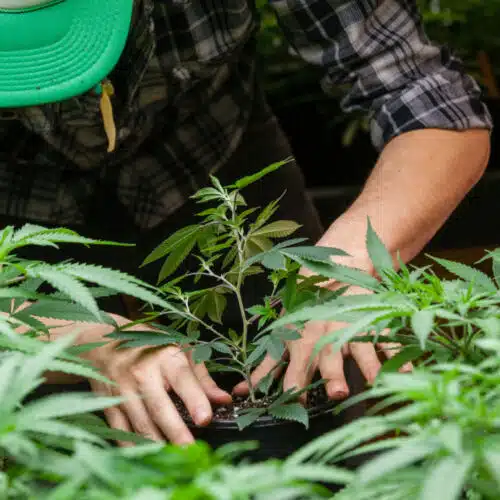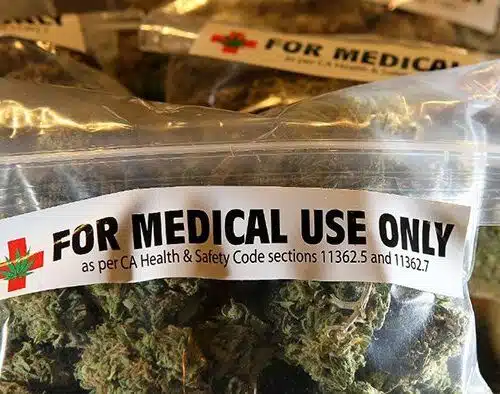This week marks the 41st annual National Suicide Prevention Week
Can cannabis curb the suicide epidemic? In the United States, suicide claims the life of one person every 12.8 minutes, with depression being the leading known cause for someone taking their own life.
This week marks the 41st annual National Suicide Prevention Week, organized by the American Association of Suicidology (AAS). Recognized across the United States from September 6th through the 12th, it aims to extinguish the suicide epidemic by dispelling myths and raising awareness surrounding the delicate topic of suicide.
In 2013, official statistics reported that just over 41,000 individuals died from suicide in the United States. However, it is widely acknowledged that these statistics can be low compared to the actuality of the situation, given the numerous deaths that are ruled an accident despite the fact that the individual was known to be suicidal. As the stigma attached is immense for victims of suicide and their families, this comes as no surprise. Alongside the staggering statistics sit myths that derail the way we perceive the issue.
According to the AAS, these myths include:
- Only white males die by suicide.
- Suicidal teens overreact to life events.
- Suicides happen without warning.
- Suicide is an act of aggression, anger, or revenge.
While the aforementioned are egregiously untrue stereotypes, there are two subgroups that the suicide epidemic fiercely targets: veterans of the U.S. military and members of our society that identify as lesbian, gay, bisexual and/or transgender (LGBT). Mix these realities with the existing pharmaceutical treatments most commonly prescribed for depression—including the well-known names of Zoloft, Prozac and Paxil—more side effects and questions exist than cures and answers. Here, we find cannabis emerging from the shadows and offering itself as all-natural anti-depressant.
Studies have shown that suicide rates decline in states where medical marijuana has been legalized. In the study released in Bonn, Germany and entitled High on life: Medical Marijuana Laws and Suicide, the Institute for the Study of Labor released data collected from 1990 to 2007. The study stated:
Our results suggest that the passage of a medical marijuana law is associated with an almost five percent reduction in the total suicide rate, an 11 percent reduction in the suicide rate of 20 through 29-year-old males, and a nine percent reduction in the suicide rate of 30 through 39-year-old males.
The intersection of suicide and substance abuse, specifically regarding alcohol and opiate use, is another avenue with which cannabis can have a positive effect. William Dolphin from Americans for Safe Access has written on the topic of medical marijuana laws and the reduction of these fatal overdoses:
“People living with chronic pain, depression or both are more likely than others to use alcohol, opiate drugs, or a combination to manage their symptoms. Use of alcohol or opiates is linked to a substantially increased risk of suicide; 90 percent of people who commit suicide are battling depression, substance abuse, or both.
On average, states with medical cannabis laws have seen a 25% decrease in overdose deaths from opiate drugs, with a consistent trend line showing fewer deaths the longer the laws are in effect. The reduction in fatal overdoses is immediate at about 20 percent and hits one-third after five years. Many of those overdoses were unintentional, but it is a blurry continuum from unintentional to acting with reckless disregard for the potential risks to outright suicide.”

Chronic stress is yet another cause for depression. In a 2015 study on rats, neuroscientists at the University of Buffalo Research Institute on Addictions discovered that chronic stress reduced the natural production of endocannabinoids. Given that endocannabinoids are known to affect our moods, emotions and behavior, their production is essential for healthy cognitive functioning. When researchers administered cannabinoids found in marijuana, they found it effective in restoring their endocannabinoid levels. Lead researcher, Dr. Samir Haj-Dahmane concluded:
“Using compounds derived from cannabis—marijuana—to restore normal endocannabinoid function could potentially help stabilize moods and ease depression.”
In a patient story published in Medical Marijuana Review, the story of Ottawa resident Diego Dias illuminated both the struggle and success that often surrounds individuals who treat their depression with cannabis. Dias hadn’t tried cannabis until the age of 18, as he had been long-opposed to all forms of so-called illicit drugs, never entertaining the idea that cannabis could be effective in managing his depression. Upon trying cannabis for the first time, he noticed improvement in some of the symptoms, including increased appetite and ability to sleep, as well as feeling better in general. However, he didn’t attribute this to his cannabis use or realize he was self-medicating.
Dias attempted suicide at age 23. Following this, he was briefly hospitalized and prescribed five different pharmaceutical drugs–three antidepressants and two antipsychotics. After six months on the medications with no improvement and a host of deleterious side effects, he realized that cannabis was the substance that was actually effective in managing his symptoms of depression. While his doctors were willing to help wean Dias off of the pharmaceuticals, they were resistant to help him obtain his medical marijuana authorization. Upon finally gaining authorization, Dias found access to the medicine that allowed him to live a normal life.
In the end, the proper treatment of depression and suicide prevention go hand in hand. Here we find cannabis waiting to have a conversation surrounding its capacity to curb the devastating effects of depression that too often lead to suicide. Where coping mechanism meets treatment option, the efficacy of marijuana for a multitude of health conditions offers a itself as a helping hand and potential life saver. As National Suicide Prevention Week proceeds, it is imperative that we open our eyes, minds and hearts to the potential of this plant.


